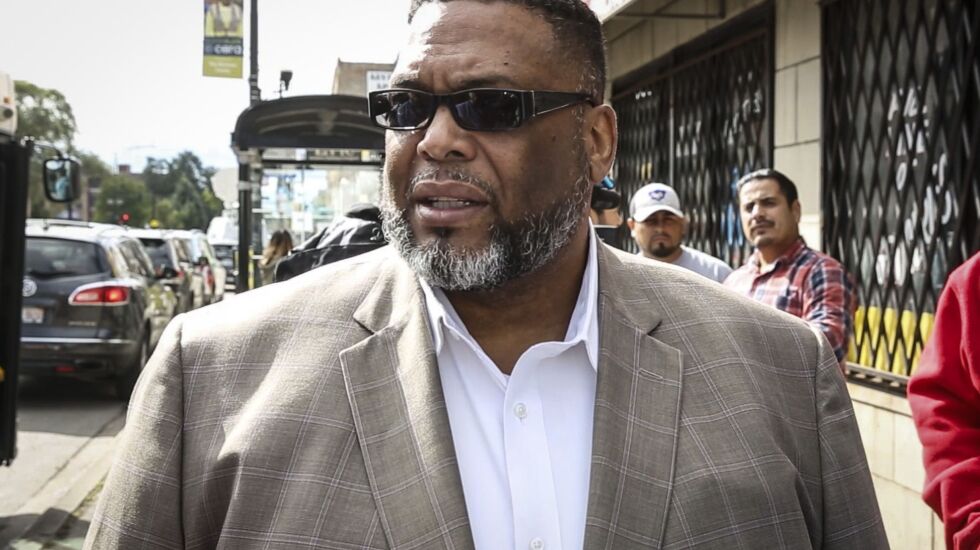Joe Ferguson spent a record 12 years as Chicago’s inspector general.
When Mayor Lori Lightfoot forced him out after clashing repeatedly with the top watchdog, it took nearly nine months to find Ferguson’s replacement.
On Thursday, the City Council’s Committee on Ethics and Government Oversight advanced a groundbreaking ordinance tailor-made to prevent both those things from happening again.
The reforms championed by Ald. Matt Martin (47th), chair of the ethics committee, would limit Chicago’s inspector general to two, four-year terms with rigid timelines for choosing a replacement and a demand for written explanations if those deadlines are not met.
If the mayor chooses not to reappoint a sitting inspector general after the first term, the Council would get 180 days’ notice — up from 45 days in Martin’s original version.
There would also be timelines for the appointment of a selection committee, hiring a search firm and a line of succession until a permanent replacement is found and confirmed for both the inspector general and deputy inspector general for public safety.
If deadlines are not met, the mayor could be required to provide a written explanation.
Martin noted the Council has approved “a number of important reforms “ strengthening the inspector general’s power to “ensure that city government works as efficiently, effectively and fairly as possible.”
But maintaining that momentum requires a “transparent and timely” process for selecting an inspector general.
“It took approximately nine months from the previous inspector general’s resignation to appoint and confirm our current inspector general, with six of those months finding the position vacant. And when General [Deborah] Witzburg stepped down from her previous position as public safety deputy [IG], that deputy position was also vacant for many months,” Martin told his colleagues.
“This ... highlights the needs for an improved IG selection process that can help maintain the stability and certainty of an office that has tremendous power and discretion in how it helps hold our city government accountable.”
Ferguson has been lukewarm about limiting his successors to eight years, arguing that a two-term limit for the inspector general without a two-term limit on the elected officials they’re keeping tabs on makes little sense. If term limits are good for one, they should be good for both, Ferguson said.
Witzburg strongly disagreed.
She’s such a big believer in term limits, she plans to serve two terms, even though she could stay on for a maximum of 12 years, since the change would be enacted during her first four-year term.
“Stability, order, independence and the ability to empower the office of inspector general unfettered by concerns about overempowering a specific individual all bode in favor of the imposition of a term limit,” the inspector general said.

Witzburg said there are “big-picture, widely accepted, good government principles in favor of term-limits” generally — and the argument becomes even stronger when you’re talking about the inspector general’s office, where “independence is the hallmark” of its work.
“If any one person is in this position for too long, it increases the risk that relationships with other actors in city government become either too friendly or too acrimonious in a way which compromises the work,” she said.
“The sensitivity of the position, the access to confidential information and the discretion vested in the office ... bodes in favor of the individual not being the holder of that power, but rather the institution. The best balance to strike between institutional knowledge and experience and that kind of independence and fresh perspective is a term limit.”
Ald. Chris Taliaferro (29th), a former Chicago police officer now chairing the Police and Fire Committee, has mixed feelings about term limits.

“If you’re doing an incredible job in your position and you’re very well-received — not only by department heads, but by this Council and well-received by the city as well — we could be losing a very valuable asset,” Taliaferro told Witzburg.
“I look at a lot of the commanders that come through the [police] districts that make a very big impact on reducing violence. And then, they’re pulled up from under us. Sometimes, we get someone better. Sometimes, even worse. For that reason, I disagree.”
Witzburg called those “valid concerns” but added: “It is my intention to build and equip this office to succeed long after I am in this seat. None of us will be these jobs forever. … We don’t own these institutions. We are stewards of them. It is our highest responsibility to equip the institutions to succeed after our time is over. And that’s what I intend to do in this job.”







